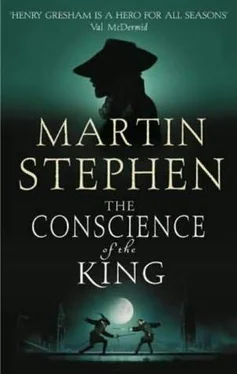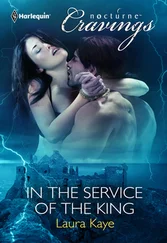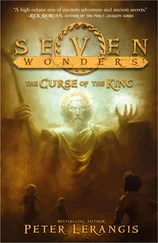Martin Stephen - The Conscience of the King
Здесь есть возможность читать онлайн «Martin Stephen - The Conscience of the King» весь текст электронной книги совершенно бесплатно (целиком полную версию без сокращений). В некоторых случаях можно слушать аудио, скачать через торрент в формате fb2 и присутствует краткое содержание. Жанр: Исторический детектив, на английском языке. Описание произведения, (предисловие) а так же отзывы посетителей доступны на портале библиотеки ЛибКат.
- Название:The Conscience of the King
- Автор:
- Жанр:
- Год:неизвестен
- ISBN:нет данных
- Рейтинг книги:4 / 5. Голосов: 1
-
Избранное:Добавить в избранное
- Отзывы:
-
Ваша оценка:
- 80
- 1
- 2
- 3
- 4
- 5
The Conscience of the King: краткое содержание, описание и аннотация
Предлагаем к чтению аннотацию, описание, краткое содержание или предисловие (зависит от того, что написал сам автор книги «The Conscience of the King»). Если вы не нашли необходимую информацию о книге — напишите в комментариях, мы постараемся отыскать её.
The Conscience of the King — читать онлайн бесплатно полную книгу (весь текст) целиком
Ниже представлен текст книги, разбитый по страницам. Система сохранения места последней прочитанной страницы, позволяет с удобством читать онлайн бесплатно книгу «The Conscience of the King», без необходимости каждый раз заново искать на чём Вы остановились. Поставьте закладку, и сможете в любой момент перейти на страницу, на которой закончили чтение.
Интервал:
Закладка:
Martin Stephen
The Conscience of the King
The play's the thing Wherein to catch the conscience of the King
Hamlet by William Shakespeare, 1601 version, Act 3, Scene 1,1.47.Prologue
30th May, 1593 Deptford, South London
'A great reckoning in a little room…'
Shakespeare, As You Like It'Time for you to die.’ Poley's voice was quiet, menacing
The river by Deptford was stained a dark red-brown. The slaughterhouses were at work. They cut channels in the hard floors to take the blood of the slaughtered animals and feed it out to the waiting Thames. The river was foul enough anyway, carrying all London's sludge with it, and on killing days the blood, shit and piss of the terrified beasts stained it an even deeper brown. The noise of the animals, sensing their own death and the death of their kind, was terrible, shrieks and roars that could have come from the mouth of Hell. However deep they dug the channels, the blood seemed to splash against the timbers of the walls and rot them quicker than the wettest winter.
'I will decide when it is time.' Marlowe flung himself on the window seat. Christopher Marlowe. Kit Marlowe. The greatest, the first and the finest dramatist in England. His extravagantly slashed black velvet doublet was stained, elbows rubbed to a matt sheen where they had rested on tables in so many taverns.
'You no longer decide things. We do. You lost the power to decide anything when you became unsafe.' Poley spoke as calmly as ever, but with the slightest edge to his voice. 'You had a bargain. You did as you were told and you kept silent. As all of us do. But you had. to speak out, didn't you? You had to make a noise, draw attention to yourself.' There was hatred in Poley's eyes, in his voice. A hatred of weakness. A hatred of men who let their emotions take control.
'Sweet Jesus!' said Marlowe, grinning stupidly. 'Is even the great Master Poley showing signs of strain?' But to die in Deptford, he thought to himself. The heroes and villains he had created in his plays had bestrode heaven and hell, and all that lay between. The poet who had given them life was to die in London's arse-end.
'It's time.' The control in Poley's voice was more frightening than any anger. 'It's time now.'
He was right. The agreement was that Marlowe would die in a dispute over the bill for the meal they had shared. The meal had been eaten. It was time for the reckoning.
Marlowe jumped up steadily enough. Poley remained seated, watching him, outwardly calm, as emotional as drawn steel. Frizer and Skeres, the hired help, edged back, nervous, eyes flicking between Marlowe and Poley, waiting for orders. Marlowe looked at them and let a thin sneer curl his upper lip. He started to strip off, first the doublet, then the lace collar he had always preferred over the ruff. The poor clothes lay on the table waiting for him, the jerkin stained and stinking of sweat.
They had supposed they would find a young sailor to kill for the body that a simple local Justice would accept as being that of Christopher Marlowe. Bodies of all sorts were cheap in Deptford, and souls even cheaper. Then providence had intervened. They had decided to hang a mad Puritan, the writer of the infamous Marprelate tracts, four miles up the road at St. Thomas-a-Watering only yesterday evening. John Penry was a year older than Marlowe and, ironically, also a Cambridge man. Some money to a sexton who cared little where a hanged man was buried had emptied the cheap coffin, and a ruff in place of Marlowe's lace collar would hide the rope marks well enough. It was better than the sailor. They would have had to have got him drunk, which would have been easy, and then separate him from his friends, which would have been harder. True, no one would miss another dead seaman. But they would miss someone already dead even less, and a body whose fingers had the dark stains of ink on them and were untroubled by hauling ropes for a living was an unexpected bonus.
The act of putting on the filthy clothes sobered Marlowe. The purse was heavy, and he half waited for an attack from Poley and the two other men. It did not come. They would try to kill him, of course, despite their agreement and the bond struck with Henry Gresham. Poley had not lived and prospered as long as he had in England's dark underworld by being stupid. He wouldn't risk doing it in the house. There would be one or two men waiting on Deptford Strand, Marlowe thought, or, even better, one of the sailors on board the brig Poley knew he was to sail on with the tide. Well, sweet Robin Poley was in for some shocks of his own.
Marlowe nodded to the men. Poley stepped out of the door, and returned a minute or so later.
'It's clear,' was all he said. The less Poley spoke, the more dangerous he was.
Marlowe felt stupid in his stained workingman's clothes. He wanted to make a grand exit, like one of the characters in his plays, or speak an epilogue to his own life. What were the lines he had written for Faustus?
Cut is the branch that might have grown full straight, And burned is Apollo's laurel bough
Instead, all he could think of was a line from the same play:
Why, this is Hell, nor am I out of it
The three watchers saw nothing of Marlowe's inner turmoil. One moment he was standing by the low wooden door, silent, unmoving, the next he was gone into the deepening light of the evening. It was the last any of them would see of him. In a few moments they would start the ruckus that would lead to the supposed death of Christopher Marlowe, and poor John Penry's body, already suitably mutilated, would be laid out and buried in an unmarked grave in Marlowe's name.
1
May, 1612 The Globe Theatre, Bankside, London
'Murder most foul'
Shakespeare, HamletThe blue of the sky was almost painful to the eyes. The thin pall of smoke hanging over Bankside was pungent, the smell of unseasoned wood, the sap bubbling and boiling and snapping at the nose, mingling with the heavier, earthier stench of sea coal. The smoke had given up trying to dampen the warmth of the sun, roasting the men and women still for the most part dressed in heavy, winterish woollens that exuded the thick, musty smell of a long winter.
Five hundred years ago, the Norman conquerors had set down the forbidding bulk of the Tower of London to control men's bodies and the mass of St Paul's Cathedral to control their minds. Both still squatted over London's citizens, a raw glare of power. Yet now there was a new power afoot, uncontrolled, anarchic, threatening. The theatre had come to London.
They came to the play in their thousands. Shipwrights and sailors from St Dunstan's; weavers and cobblers from St Giles Cripplegate; the silk weavers from Allhallows Honey Lane. From the fine, high-timbered merchant's houses to the acrid stench of the hatmakers' workshop, through the narrow streets where the shrieks and cries of the vendors seemed to overwhelm the ears, they flocked over London Bridge or called out from the landing stages — Westward Ho! ' 'Eastward Ho!' — to be ferried across the Thames. The boats buzzed and flicked around the jetties like flies to horse dung.
The flag flew above The Globe theatre, its sides high to wind and weather. It was a packed house. The timbers cracked and spat like an old man roused from slumber by his family.
'Like an old woman, isn't she?' John Hemminge was one of the founders of the company. 'All the paint and gilt in the world can't cover up her cracks!'
The Actor listened and smiled despite his sickness. He loved The Globe. He had been there on that famous night eleven years ago when the players had taken down the timbers of The Theatre plank by plank and seen them off in a string of wagons and then boats across the river to build The Globe. The Lord Chamberlain's Men, the finest troupe of actors in the realm, had not owned the land on which The Theatre sat, but they had ownership of its timbers. The bastard Alleyn, who owned the site, had threatened to foreclose on them. So they had taken what was their own and moved it piece by piece over the river to make their new home: The Globe.
Читать дальшеИнтервал:
Закладка:
Похожие книги на «The Conscience of the King»
Представляем Вашему вниманию похожие книги на «The Conscience of the King» списком для выбора. Мы отобрали схожую по названию и смыслу литературу в надежде предоставить читателям больше вариантов отыскать новые, интересные, ещё непрочитанные произведения.
Обсуждение, отзывы о книге «The Conscience of the King» и просто собственные мнения читателей. Оставьте ваши комментарии, напишите, что Вы думаете о произведении, его смысле или главных героях. Укажите что конкретно понравилось, а что нет, и почему Вы так считаете.












